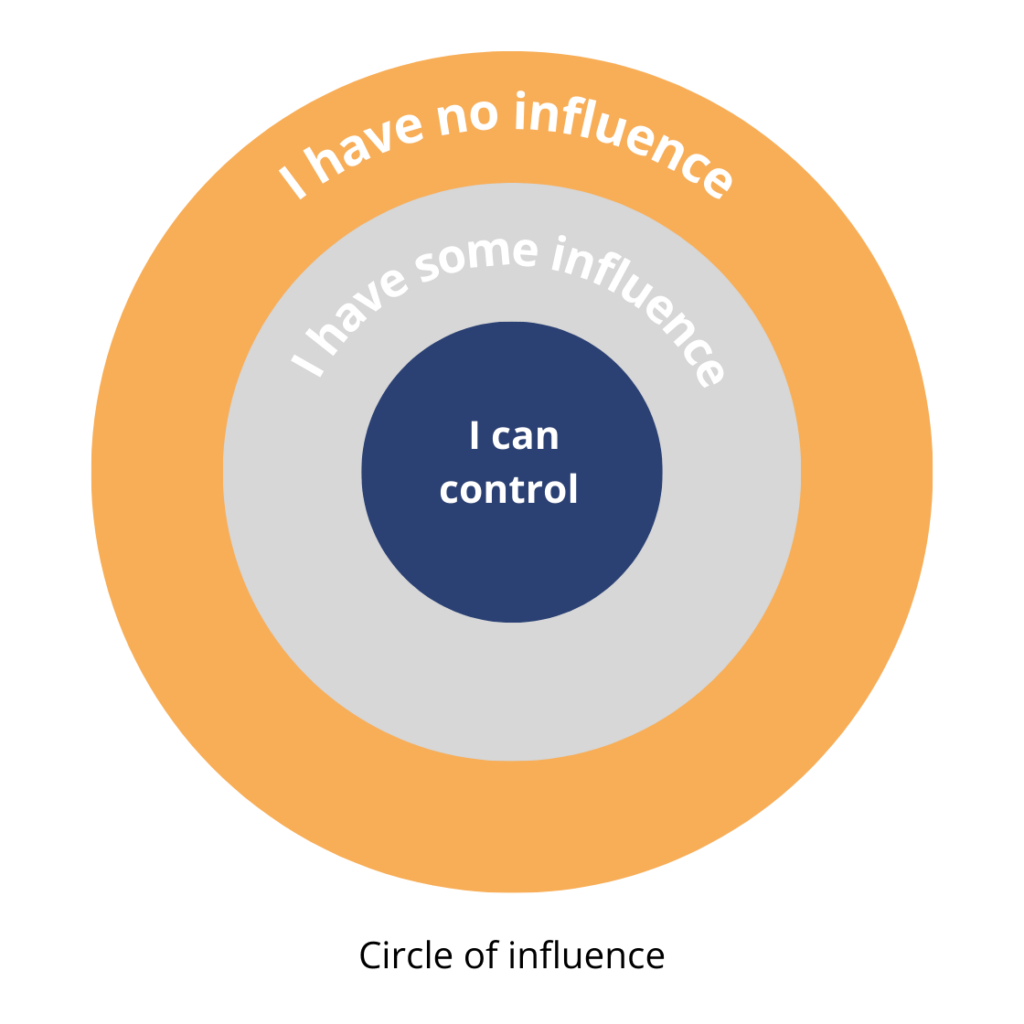If it feels like you are running on fumes at the end of the year, it’s probably because you are. A recent Gartner revealed study that 75% of leaders feel overwhelmed with the expanding scope of their responsibilities.
Prioritising wellbeing is therefore essential not only for personal health but also for sustaining peak performance as a leader in the face of expanding demands. Enhanced wellbeing is associated with reduced incidence of depression and anxiety, increased ability to cope with stress, greater resilience and better memory, and greater flexibility in thinking and decision making —all crucial for sustainable leadership.
In this month’s blog, SMG Executive Coach and Facilitator, Dr Gabby Ostrognay provides evidence-based guidance on emotion-focused, cognitive and physical strategies, proven to support executives in sustaining wellbeing and reducing stress.
Dr Ostrognay has a PhD in Psychology and is a Professional Certified Coach with the International Coaching Federation. She has over 20 years of experience in executive coaching and building leadership capability through tailored strategies, and feedback systems.
Dr Ostrognay discusses practical techniques which are adaptable to the realities of senior leadership and are designed to foster sustainable habits. While these suggestions can be highly effective, they do not replace professional support where required.
Start small: Build confidence before scaling
Adopting new habits amidst the complexity of leadership requires a gradual approach:
- Choose one or two strategies: Begin with manageable steps to build confidence before layering on more. Make it a habit before expanding.
- Start during calm periods: We are creatures of habit. New habits are best developed when you’re not under acute stress. It is very difficult to learn new things when you are distressed.
- Create a written plan: specifying what, where, and when you’ll practice each strategy. Regular repetition will deepen your understanding and turn these steps into lasting habits.
Cognitive and emotional strategies to reframe and refocus
1. Use positive self-talk to build resilience
Leaders often fixate on problems, which can give us a distorted view of reality. Pay attention to your inner dialogue. If it’s overly critical or future-focused, reframe it with evidence-based optimism. Speak to yourself with the kindness and encouragement you’d offer a trusted colleague.
Tip: Break this cycle by writing down three things that went well each day, and why. This practice trains your brain to shift attention and recognise success, fostering a more balanced and optimistic outlook.
2. Know your triggers
Self-awareness is the cornerstone of stress management. Identify what energises you and what deflates you. Use this insight to incorporate uplifting activities and approach stressors with intentionality by pausing before reacting.
3. Set aside time to worry
Within Cognitive Behavioural Therapy literature there is evidence that setting aside a specific time to worry each day is effective in managing stress and improving wellbeing. Dedicate 15 minutes daily to address worries, parking concerns until then. Writing down your worries reduces mental clutter and rumination.
4. Reframe stress
The way we view the stress response, ‘fight or flight’, influences how our body responds. Viewing the stress response as helpful in preparing the mind and body to meet a challenge changes our body’s response is key. People who believe that stress is bad for their health are significantly more likely to die earlier than those who believe that the stress response is helpful, even when they experience the same levels of stress. For an inspiring perspective, watch Kelly McGonigal’s TED Talk on reframing stress.
5. Accept and experience feelings
Expanding your emotional vocabulary enhances emotional intelligence. Research highlights the role acceptance plays in the regulation of emotion. Accepting and experiencing negative emotions helps them pass, building greater tolerance and emotional resilience. Fighting or avoiding the experience can intensify the feeling, make it last longer and become more frequent. This mindset fosters faster recovery from challenges.
6. Practice gratitude
Practicing gratitude helps improve wellbeing. Expressing gratitude to others increases happiness and strengthens relationships. Practicing being grateful causes our brain to look for positive things and shifts the focus from the negative. Acknowledging yourself, your peers and your team can create powerful habits of recognition, boosting self-esteem and team wellbeing and confidence.
A meta-analysis reported in Scientific American showed that social connection increases life expectancy by 50%. There is evidence that people who write about things they are grateful for, over an extended period (6 months), reduce their level of pessimism and feel more optimistic.
Physical strategies to support wellbeing
1. Prioritise sleep
Quality rest enhances cognitive performance and emotional regulation. Create a calming pre-sleep routine by turning off devices 30 minutes before bed.
2. Stay active
Regular physical activity improves mental and physical well-being. Simple acts like walking or being in nature can reduce stress and elevate mood.
3. Practice intentional breathing
Exhaling longer than inhaling, activates the calming parasympathetic nervous system. For example, try inhaling for four counts and exhaling for six.
4. Engage in Meditation
Meditation reduces stress and sharpens focus. Leverage apps like Insight Timer, Smiling Mind or Headspace for guided sessions tailored to busy leaders.
5. Create a ‘Circle of Influence’
Accepting the things that you cannot control, even though you may care about them, means you can pay attention to the things you can control and influence.
Tip: Draw three concentric circles to map what you can control, what you can influence, and things that you can neither control, nor influence. This supports you to focus your energy on actionable areas to avoid feeling overwhelmed.
Centre circle (I can control) – What I say, my decisions, my actions, where I work, who I associate with.
Middle circle (I have some influence) – My relationships with my family, friends and colleagues, how I spend my time.
Outer circle (I have no influence) – My past decisions/behaviour, the opinions and choices of others.
Keep this picture somewhere you can easily refer to remind yourself where to spend your energy.

Wellbeing as a strategic imperative
Wellbeing is no longer an optional concern for leaders; it is foundational for effective, sustainable leadership. Leaders who prioritise their wellbeing not only enhance their own performance but also set a critical example for their teams. This is especially true for today’s leaders, where stress levels are high, and resilience is a key differentiator.
When leaders model self-care and openly discuss their wellbeing practices, they signal that health and balance are valued within the organisation. This encourages employees to do the same, creating a culture where mental, emotional, and physical health are integral to success. Research consistently shows that organisations with a focus on employee wellbeing experience higher engagement, lower turnover, and increased productivity.
Turning insights into action
Below are three actionable steps leaders can take to embark on their wellbeing journey:
Start now
Avoid delaying until the “perfect time” to prioritise wellbeing. Even amidst tight schedules, choosing one simple strategy—like practising gratitude or deep breathing—can have a profound impact. Implementing small, manageable changes builds momentum and confidence, laying the foundation for larger transformations.
Reflect regularly
In leadership, it’s easy to overlook personal progress. Daily reflection, even for just a few minutes, allows you to assess what’s working, identify barriers, and adapt. Writing down observations and reflections becomes not only a tool for self-awareness but also a tangible record of your commitment to growth.
Engage your team
Leaders have a unique opportunity to normalise wellbeing discussions within their organisations. Sharing your own practices—whether it’s using reframing techniques, exercise routines, or time management strategies— this encourages openness and builds trust. By fostering a supportive environment, you empower your team to invest in their own health, strengthening the collective resilience of the organisation.
The benefits of focusing on well-being extend far beyond the individual. A leader’s capacity for clarity, empathy, and innovation is directly tied to their mental and physical health. Prioritising these elements is a strategic decision that enables you to meet challenges head-on while inspiring others to do the same.
In the long term, this focus leaves a legacy. By embedding wellbeing into the leadership culture, you create a framework for sustainable success that benefits your organisation, its people and its stakeholder relationships.
Start today. Reflect often. Engage with your team. The path to greater wellbeing begins with a single step, and its rewards are transformative.
To learn more about SMG’s wellness programs for teams and organisations, or to complete our 6 Cylinders of Wellness questionnaire, visit our Wellness at Work solutions.
If you’re looking for personalised executive coaching with Dr Ostrognay or one of our many experienced executive coaches or mentors, connect with our team. Our experienced team can support you to enhance your wellbeing and reach peak performance.










